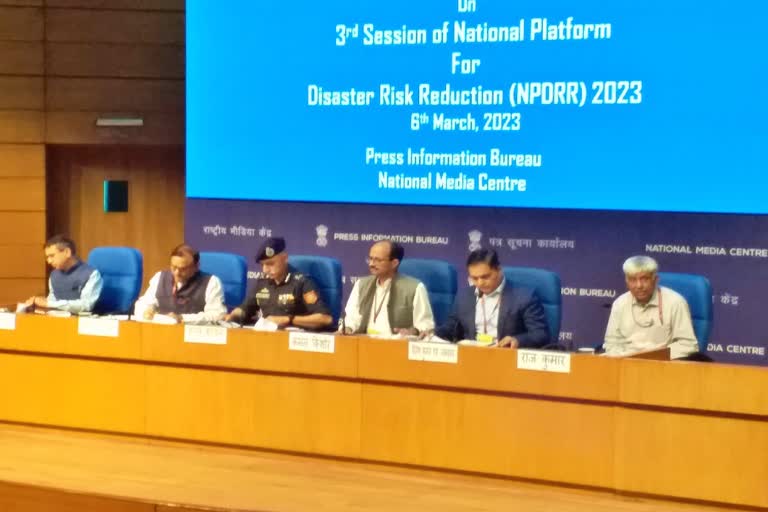New Delhi: Concerned over the sinking Joshimath episode, the perennial flood situation of Assam as well as heat waves and coastal hazards across India, the Ministry of Home Affairs (MHA) is organising a two-day-long programme of the third session of the National Platform for Disaster Risk Reduction (NPDRR) in New Delhi from Friday to build local capacities against the changing disaster risk scenario.
"The programme aims to build local resilience in a changing climate," said Kamal Kishore, a member of the National Disaster Management Authority (NDMA) on Monday. It will be a multi-stakeholder platform where government, as well as the private sector, academicians, and state government representatives, will be present to find out long-lasting solutions to the threats imposed by climate change," said Kishore.
"To be inaugurated by Prime Minister Narendra Modi, the programme with try to build local capacities, especially in the context of a rapidly changing disaster risk scenario in the wake of climate change," Kishore said.
The NPDRR will be attended by over 1000 distinguished guests including Union Ministers, Ministers of Disaster Management from States, Parliamentarians, representatives of local bodies, heads of specialised disaster management agencies, academicians, representatives from the private sector and civil society organizations.
Also Read: MHA asks States to nominate officers for UN police training on child protection in Germany
Union Home Minister Amit Shah will also chair a round table conference of all State representatives that will share knowledge, experiences, views and ideas, discuss the latest developments and trends in disaster risk reduction, identify gaps, make recommendations and forge partnerships to further accelerate disaster risk reduction efforts.
Significantly, ahead of the two-day long conference, 19 pre-event programs have been organised across India on different topics like heat waves, and coastal hazards, enhancing the leadership of women in disaster risk management over the last two months.
Jointly organised by the Home Ministry, NDMA, National Disaster Response Force (NDRF), and National Institute of Disaster Management (NIDM), the NPDRR will comprise four plenary sessions, one ministerial session and eight thematic sessions.
The first and second sessions of NPDRR were held in 2013 and 2017. "Over two days, the subject experts, practitioners, academicians, and delegates will deliberate upon various cross-cutting issues on disaster risk reduction based on the Sendai Framework and 10-point agenda on disaster risk reduction given by Prime Minister Narendra Modi," Kishore informed.
It is worth mentioning that the Sendai framework was adopted by 187 Member States at the Forth United (UN) World Conference on Disaster Risk Reduction in Sendai, Japan on March 18, 2015. The Sendai Framework aims to achieve the substantial reduction of disaster risk and losses in lives, livelihoods and health and in the economic, physical, social, cultural, and environmental assets of persons, businesses, communities, and countries over the next 15 years.



